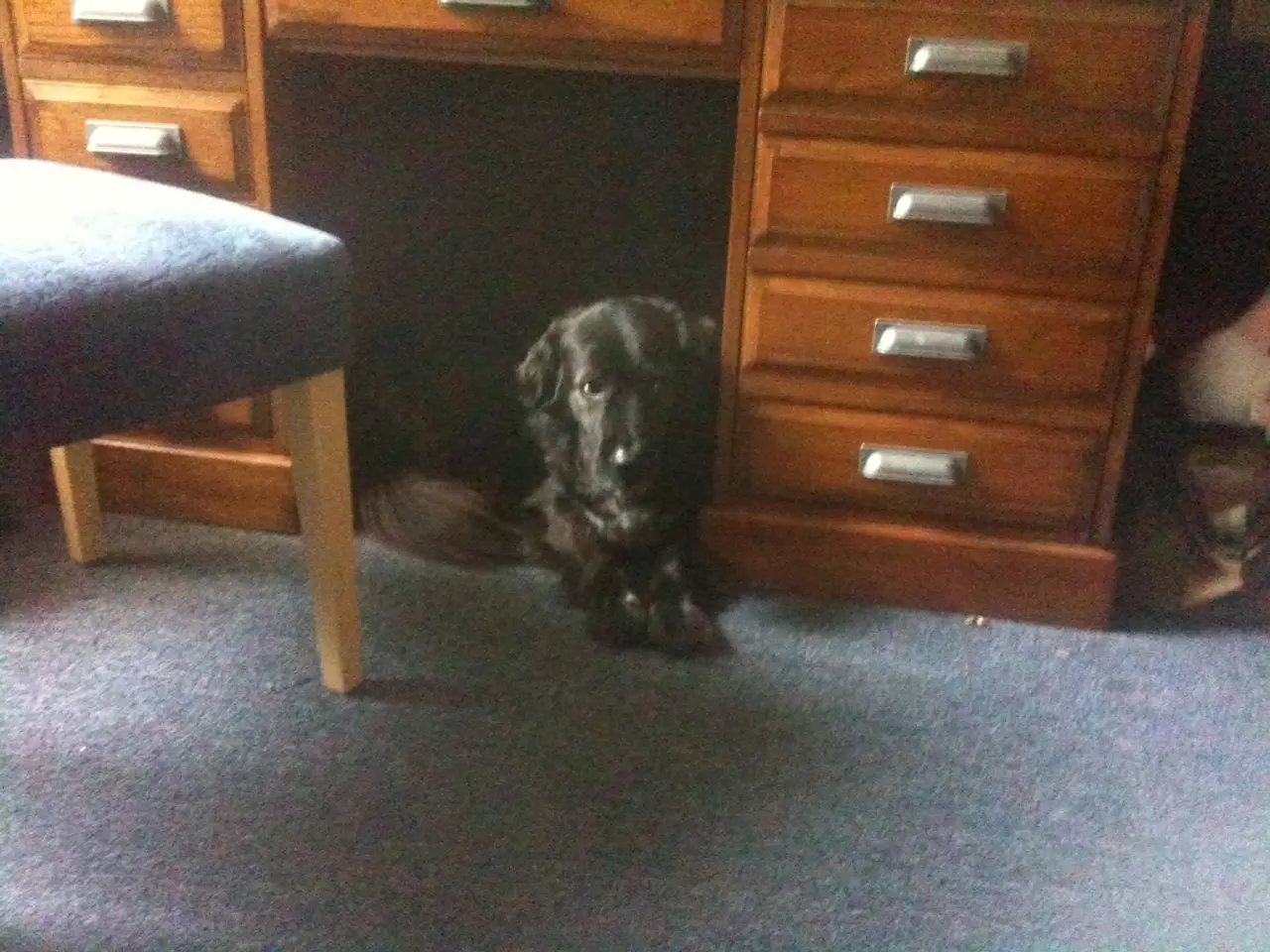Curious about why your canine might be consuming feline fecal matter? Is this behavior common among all dogs? Let's delve into this peculiar canine curiosity.
Dogs Eating Cat Poop: Understanding the Causes and Risks
Dogs eating cat poop, a behaviour known as coprophagia, is a common issue among pet owners. This behaviour can stem from a variety of factors, including instinctual, nutritional, behavioural, and medical reasons.
One of the root causes of coprophagia is the dog's instinctual behaviour. Mother dogs often clean their puppies' faeces to protect them, and this behaviour may inadvertently teach puppies that faeces are safe to eat. As puppies grow, they may outgrow this behaviour, but some may continue to exhibit it.
Another cause can be nutritional deficiencies, particularly a lack of B vitamins or digestive enzymes. Dogs may eat faeces as a way to reclaim undigested nutrients. Behavioural issues such as boredom, stress, anxiety, or attention-seeking can also lead dogs to eat faeces.
While the reasons behind coprophagia may seem harmless, the practice is harmful because it exposes dogs to parasites, bacteria, and diseases that can compromise their health. Feces can contain intestinal parasites such as roundworms, hookworms, and Giardia, as well as harmful bacteria like E. coli, Salmonella, and Clostridium. Eating faeces from other animals, such as cats or wildlife, increases the risk of infections, gastrointestinal inflammation, vomiting, diarrhea, and weight loss. Repeated ingestion heightens exposure to these pathogens, posing health risks not only to the dog but potentially to humans in contact with the dog.
To address this issue, it is recommended to consult a veterinarian to rule out any underlying medical conditions and to address the behaviour properly. Ensuring balanced nutrition, prompt faeces cleanup, regular deworming, and providing mental enrichment can help reduce coprophagia.
There are several ways to deter dogs from eating cat faeces. Placing the litter box in a room inaccessible to the dog can prevent access. Covered litter boxes or high shelves can reduce temptation for the dog. Regularly cleaning the cat's litter box can also help deter the dog from eating cat faeces. A baby gate with a small opening can allow the cat through while keeping the dog out.
It is important to ensure that the dog gets enough exercise, mental stimulation, and a complete diet. A new or compulsive poop-eating habit may signal an underlying medical condition, so it is important to consult a veterinarian. A dog trainer can help reinforce good behaviour using positive reinforcement.
Puppies and young dogs are especially vulnerable to infections from faeces due to their developing immune systems. Therefore, it is crucial to take precautions to prevent coprophagia in these dogs.
In conclusion, while coprophagia may seem like a harmless behaviour, it can pose serious health risks to dogs and potentially to humans. By understanding the causes and taking appropriate precautions, pet owners can help keep their dogs healthy and happy.
- Through the incorporation of science-backed therapies and treatments, pet owners can seek advice from vet professionals to ensure their dogs receive adequate nutrition and wellness, reducing the incidence of coprophagia (dogs eating faeces).
- In addition to maintaining a healthy lifestyle for pets, including regular exercise and mental stimulation, it is essential to follow good hygiene practices such as promptly cleaning up faeces to decrease the likelihood of parasitic infections and diseases.
- Adopting health-and-wellness measures, like feeding pets a balanced diet and using proven behavioural techniques learned from pet trainers, can help promote positive behaviours, diminishing the chances of coprophagia (eating cat poop), and keeping pets healthy.




